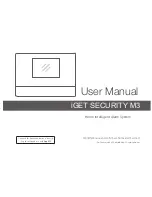
8. REPLACING THE BATTERY
1.
Use only the LiFePO4 battery recommended on the label found on the inverter/battery charger pack.
No other battery will work in this fitting, other than the type listed.
2.
Access the battery by removing the product cover as shown in
section 4 (page 3)
of this manual.
3.
Disconnect the battery from the product and if necessary, cut cable ties to release the battery from its
mounting position.
4.
Replace the battery as was previously installed. The battery can be connected in one direction only, do
not force. Secure with cable ties.
5.
Replace the diffuser decal and side cover and ensure the green charge light is illuminated. Allow a few
minutes for the battery to charge.
6.
Allow a minimum 24 hours charging time before carrying out any discharge tests as per the
requirements in AS/NZS 2293, BCA or other relevant standards.
7
Charge
current
Max charge current
Max charge voltage
Savings
Cell voltage
9. BATTERY LIFE
10. POWER AND BATTERY CHARGE
To maintain the economical life of this product it is required that the battery be discharged and recharged
at least once every 6 months. The battery life can be reduced if the battery is not discharged as per the
requirements of AS/NZS 2293 or an equivalent standard. Increasing the number of duration tests above that
as defined in AS/NZS 2293 or an equivalent standard can have a positive effect on the battery performance as
long as exceed 12 discharge cycles per year is not exceeded
The Ektor Generation III platform uses smart battery charging technology which reduces power consumption
and increases battery life.
Figure 9: Example of included battery
LiFePO4 battery (01302)
Figure 10: Smart charge rate


































